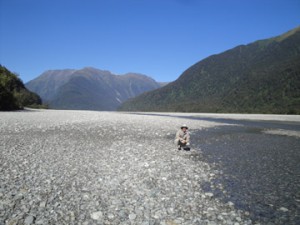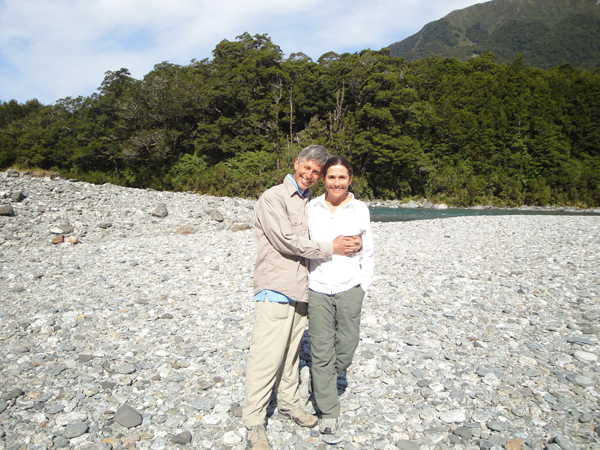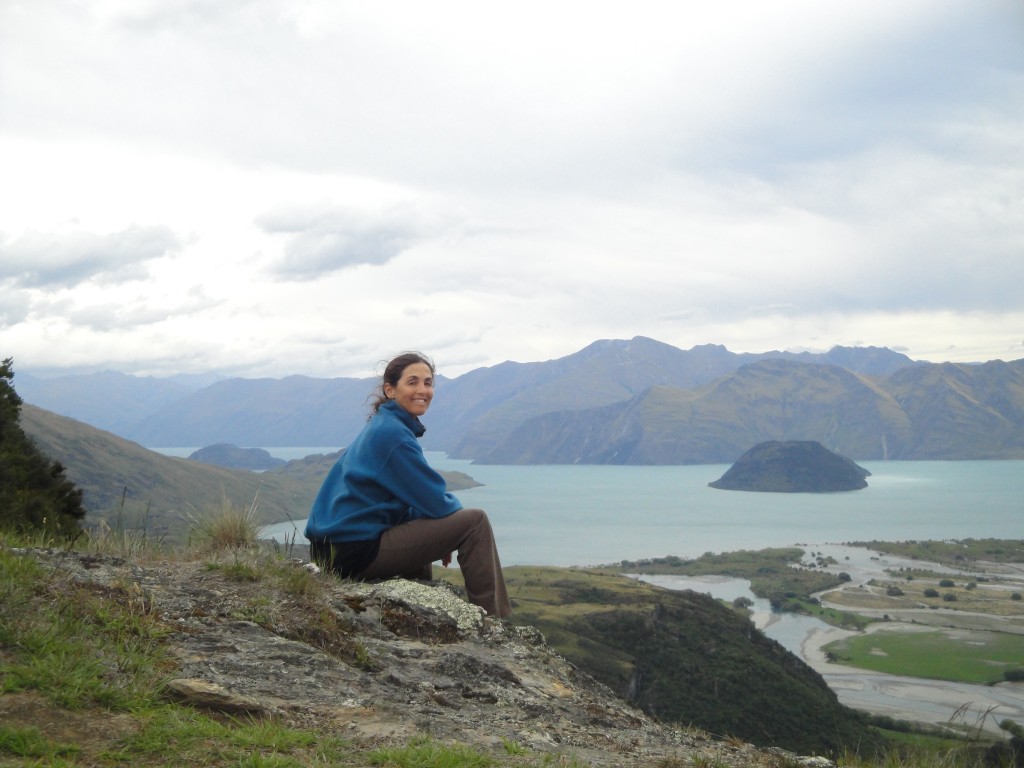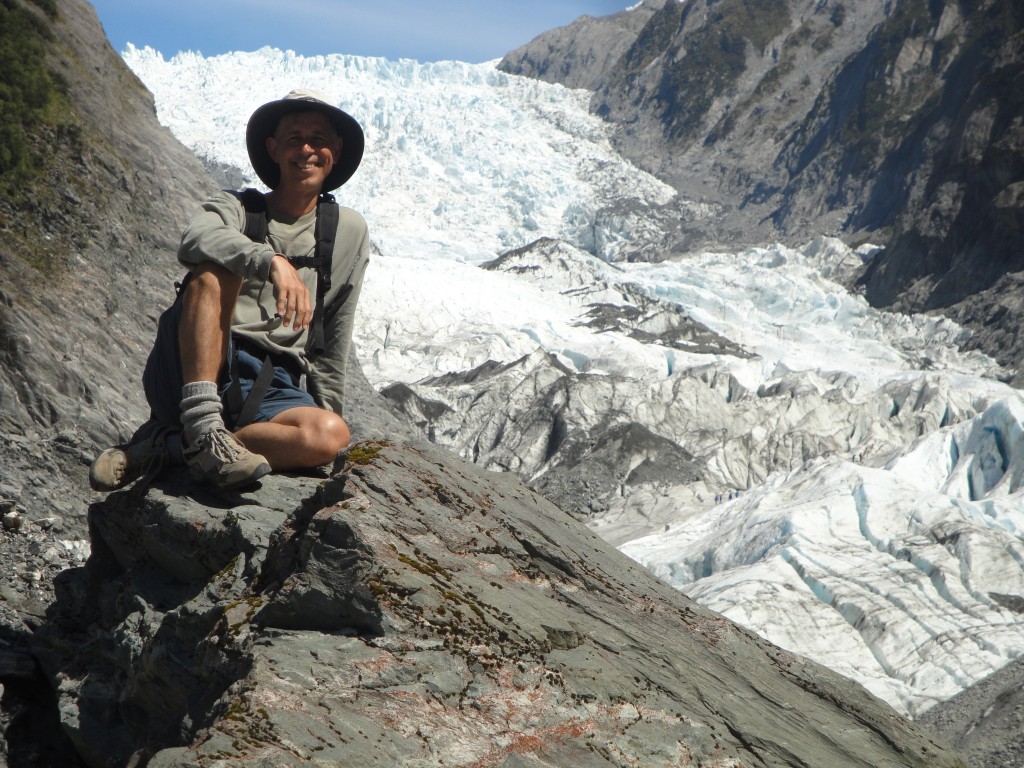
Thursday, January 13
When you travel, you never form a habit. Leaving our campsite and heading forward into a new day, new scenery, new friends,
especially on a clear sunny day, is delightfully uplifting. Driving
along highway 6 between Haast, where we camped last night, and
Queenstown, is like being on safari; you see very few people and
very little in the way of man-made structures. The area is part of a
2.6 million hectare reserve called the Te Wahi Pounamu world
heritage area; the wildest and remotest area in New Zealand. That
means no wifi, no cell phone service, totally off the grid.
The mountains are steep and thickly forested, the river beds are
wide and wild and there are few vehicles on the road. Periodically
we see man made beehives on the side of the road, usually about
15 boxes per site but that is the only trace if human commerce
anywhere.
The rivers in this area are the most beautiful blue green I have ever
seen. It is tempting to stop the car and jump in but they are hard
to access either with wire fences blocking the way or the natural
landscape making them inaccessible. And the fact that the water
temperature is ice cold coming off the snow fields of the surrounding
mountains.
 We stopped to walk out to the Roaring Billy Falls on the Haast river which is at the gateway ofMount Aspiring national park. You walk out into this 300 yard wide river bed filled with small stones that look like someone sprayed silver powder on them and across the field is a roaring waterfall coming off the side of the mountain and the most beautiful river snaking through the valley floor. Tall mountains ring the valley and all you hear is the wind, bird song, cicadas, and the roar of the water falls.
We stopped to walk out to the Roaring Billy Falls on the Haast river which is at the gateway ofMount Aspiring national park. You walk out into this 300 yard wide river bed filled with small stones that look like someone sprayed silver powder on them and across the field is a roaring waterfall coming off the side of the mountain and the most beautiful river snaking through the valley floor. Tall mountains ring the valley and all you hear is the wind, bird song, cicadas, and the roar of the water falls.
Being in a place where nature is dominant is good for the soul. All
your cares float away with the flow of the river and the wind soothes
the mind into silence. What’s left is a feast for the senses: the dark
green foliage covering the steep cone shaped mountains, the clear
blue sky, the shimmering aqua-marine water, and the most delicious
clean air you have ever tasted nourish the body as sure as the
healthy meals my brother Jim cooks.
Before settling in for the night we walked to the Blue Pools which
are named that way, the information board tells you because the
pools are blue. The kiwis are nothing if not plain spoken. They generally advertise things is the most basic way possible, ie, “really
good restaurant”. Well the blue pools were simply gorgeous deep
turquoise blue pools carved out of the sedimentary stone by the
flowing blue river. We dove into the ice cold pools and had others
follow our lead. Before we knew it people with no bathing suits
were stripping down naked because they could not resist the lure of
the enchanting pools.
Thursday night we decide to stay at Cameron Flats, a DOC (dept of
conservation) campground where we were eaten alive by black flies also known as sand fleas in these parts. I now look like I have the
chicken pox I have so many red spots. THe DOC campgrounds are
very simple and I really hope not to have to camp in one again since
getting used to the luxury of the Top 10 holiday campgrounds.



 We stopped to walk out to the Roaring Billy Falls on the Haast river which is at the gateway ofMount Aspiring national park. You walk out into this 300 yard wide river bed filled with small stones that look like someone sprayed silver powder on them and across the field is a roaring waterfall coming off the side of the mountain and the most beautiful river snaking through the valley floor. Tall mountains ring the valley and all you hear is the wind, bird song, cicadas, and the roar of the water falls.
We stopped to walk out to the Roaring Billy Falls on the Haast river which is at the gateway ofMount Aspiring national park. You walk out into this 300 yard wide river bed filled with small stones that look like someone sprayed silver powder on them and across the field is a roaring waterfall coming off the side of the mountain and the most beautiful river snaking through the valley floor. Tall mountains ring the valley and all you hear is the wind, bird song, cicadas, and the roar of the water falls.